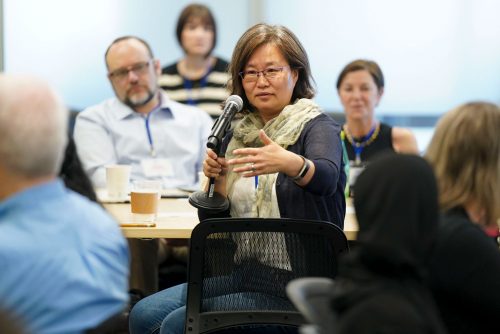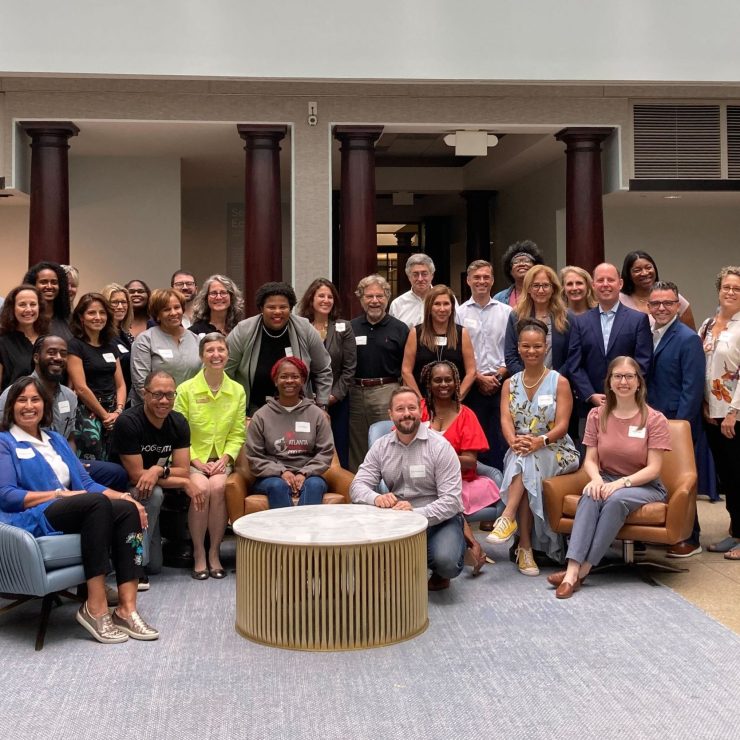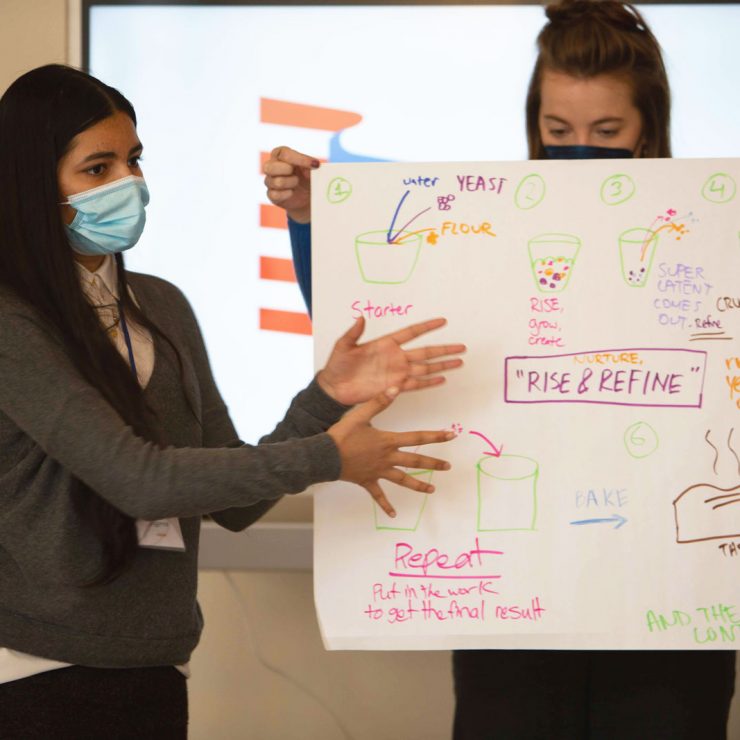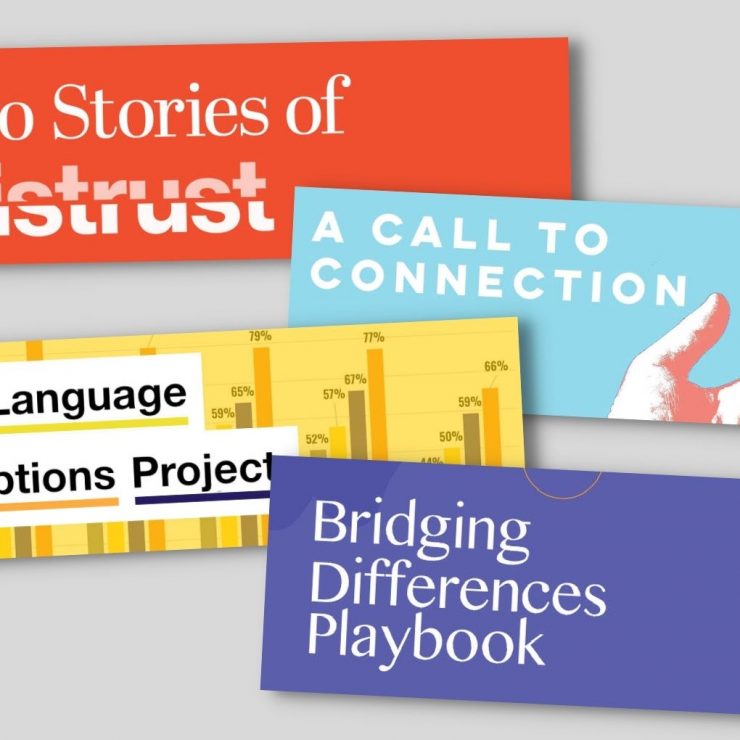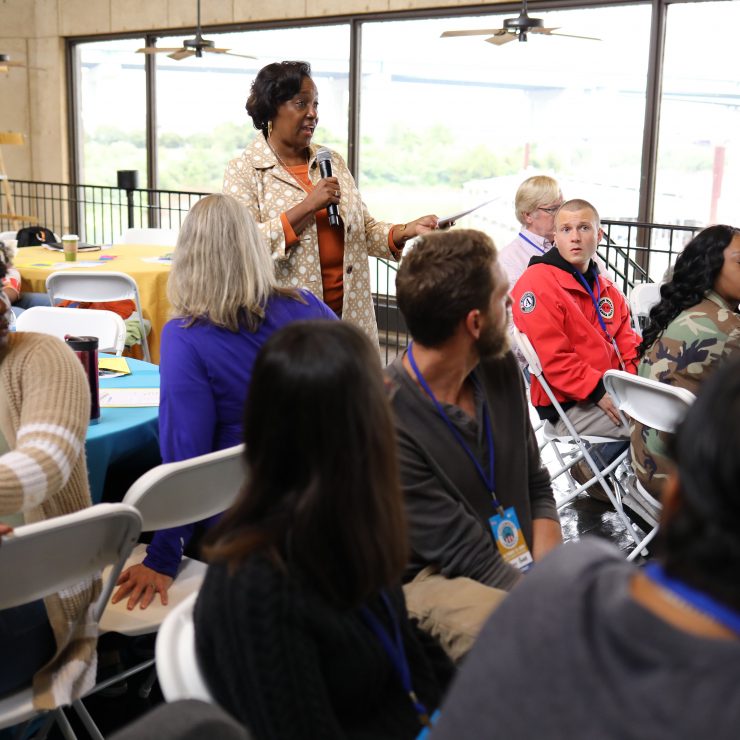Sometimes the hardest moments bring out the best in us. Even in the depths of quarantine and the moments of terror caused by gun violence, Americans are increasingly practicing the simple and powerful act of helping our neighbors — of mutual aid. This ranges from circulating groceries to volunteering our time and resources to build power for stronger policies that lift up communities.
When we share mutual aid, it’s not feel-good charity. We’re forging deep bonds of interdependence and reciprocity. We’re taking one step closer to each other as Americans. We’re affirming the fact that we’re all better off when we’re all better off. We’re inviting a shared investment in the future health of our communities.
We’re all better off when we’re all better off.
Such generosity doesn’t require a government program or an act of Congress. It’s in our culture. And it has been a defining feature of many cultures in America, well, even before “America.”
A story told again and again
Mutual aid has been both a tradition handed down and an act of necessity. In the wake of their removal from eastern lands, Cherokee people provided aid and support of all kinds to one another. Circulating aid animated organizations of Black Americans who were formerly enslaved, before and after the Civil War.
When Irish immigrants arrived in New York, Boston, and Philadelphia in the early nineteenth century, one of their first stops was the Emigrant Aid Society: a combination bank and social club that helped people connect to more established Americans with social and financial resources to share. Each round of newcomers got an early boost and then paid it forward, bringing their resources to the Aid Society for the next group of arrivals. European Jews at the turn of the twentieth century did the same, and social networks based in faith communities, artisan guilds, and private homes throughout the country have eased the transition for newcomers ever since.
Mutual aid in the Civic Collaboratory
The idea that many hands make light work — and that everyone needs a hand up at some point — applies not just literally to new arrivals, but to new efforts at imagining a better national community.
Here at Citizen University, we put this long tradition into practice with our own spin on it through our Civic Collaboratory model. Developed first as a national network, this unique gathering draws together the rich civic assets of a community: innovative problem solvers, visionary leaders, passionate organizers, willing volunteers. It shortens distance and dissolves the competition that keeps us from working together.
It shortens distance and dissolves the competition that keeps us from working together.
The Civic Collaboratory is a replicable mutual aid society and solutions incubator for people who are catalyzing civic activity. As a member of a Civic Collaboratory, you’re invited — in fact, expected — to ask for help. We call it our “rotating credit club” because everyone gets a turn at giving and receiving aid. While an ask for funding is sometimes on the list, more often than not it is relational support that participants need to get their projects off the ground or out of a rut.
The gift of raising your hand
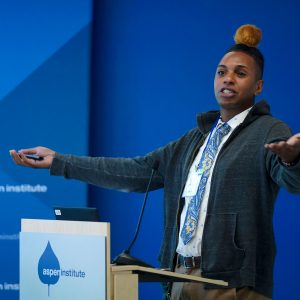 At a recent gathering, Lashon Amado with Opportunity Youth United talked about a new project called “Power Labs” which uplifts entrepreneurship as a meaningful pathway out of poverty for young people. He asked for volunteer mentors, connections to similar initiatives, and funding support. Hands in the room immediately shot up. Keith shared his gratitude for Lashon’s work — and made a commitment to volunteer his personal time. Jess committed to sharing this project with her network of startup founders. Lynn committed to make an introduction to a similar program and to be a thought partner on developing curriculum.
At a recent gathering, Lashon Amado with Opportunity Youth United talked about a new project called “Power Labs” which uplifts entrepreneurship as a meaningful pathway out of poverty for young people. He asked for volunteer mentors, connections to similar initiatives, and funding support. Hands in the room immediately shot up. Keith shared his gratitude for Lashon’s work — and made a commitment to volunteer his personal time. Jess committed to sharing this project with her network of startup founders. Lynn committed to make an introduction to a similar program and to be a thought partner on developing curriculum.
There’s something magical and contagious about making firm commitments of support. The energy in the room swelled and Lashon’s smile grew as commitments rolled in. A project that faced barriers got an unexpected shot of energy and dozens of brand new advocates, practically out of thin air.
The not-so-secret thing is, the people standing up and making commitments are the beneficiaries, too. It becomes easy to pitch in and circulate time, resources, and connections in this way because it doesn’t feel transactional or depleting. Sharing mutual aid benefits all sides of the equation. It enriches relationships. It reminds us of our shared purpose.
The young people getting a boost of energy and support in Lashon’s program will someday extend their gifts and resources to others. And Keith, Jess, and Lynn will all get their turn at receiving that boost at a future gathering.
A culture of powerful reciprocity
The Civic Collaboratory asks us to consider, “how can I put my power to use right here and now, and how does my generosity come back around to help me?” It is a cultivated practice — a habit and norm of what it means to be a contributing citizen in a self-governing society.
As we work together to form the habits of powerful, responsible citizenship, re-learning our shared traditions of asking for and offering help is a radical act toward strengthening our civic culture.
Where can you put your power to work?
This piece was co-authored by Chris Hayashida-Knight and Natalie J. Valentine.
